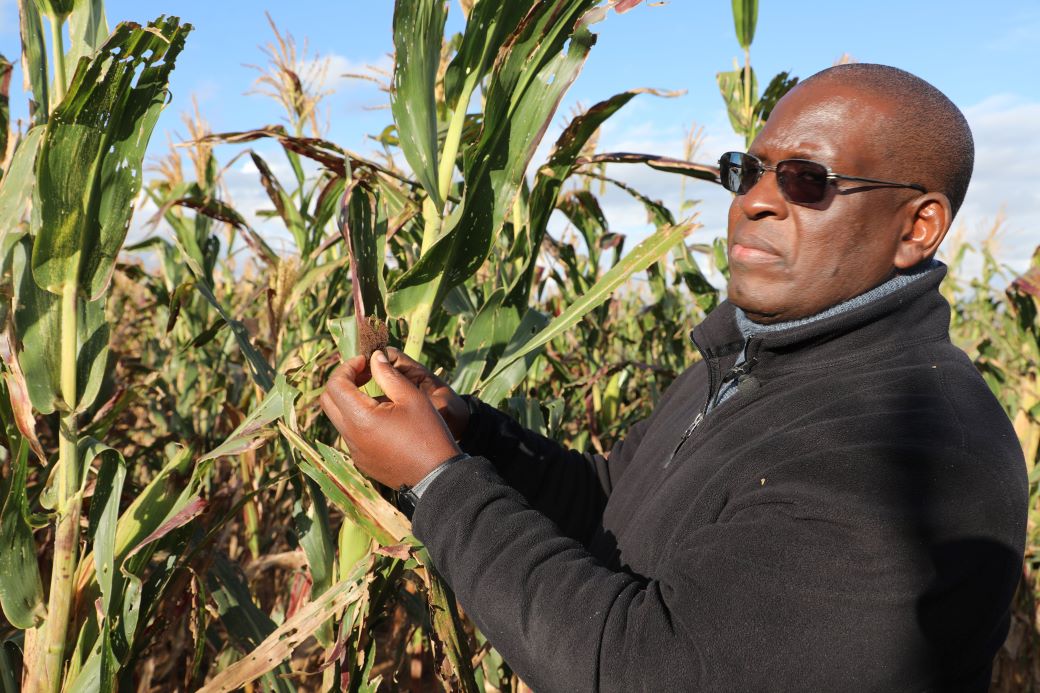TAAT’s deployment model offers hope for mitigating Fall Armyworm infestation
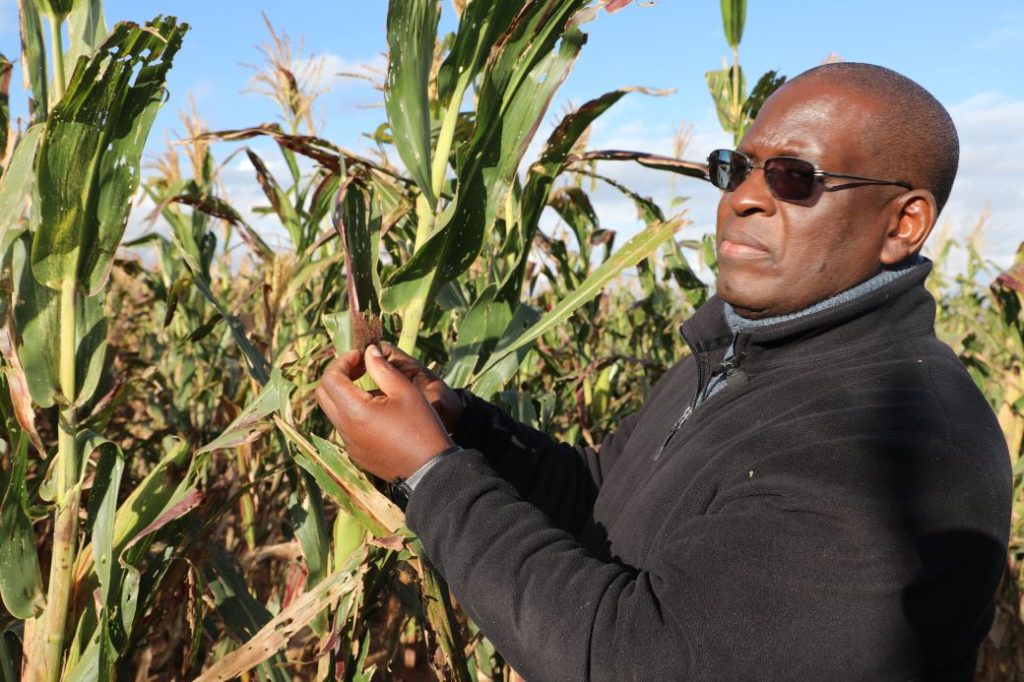
A 2022 outcome case study on Fall Armyworm (FAW) management technologies deployed by TAAT affirmed that the deployment of different FAW management technologies, including Fortenza Duo-treated seed, application of synthetic pesticides, bacterium that produce enough toxins to kill the FAW pest in the soil, botanical pesticides, cultural practices and physical and mechanical controls are crucial to controlling the FAW infestation.
TAAT established a partnership framework with the private sector, notably agrochemical and seed treatment companies such as SeedCo and Syngenta to scale the best solutions to mitigate Fall Army Worm infestations in Maize, Sorghum, and Millet. For the intervention in Zambia, several trials were conducted at the IITA station in Lusaka, Zambia including validation trials which resulted in a suite of interventions focusing on evaluating and packaging pest management protocols as best fitting FAW mitigation technologies. The validated technologies were deployed in collaboration with various partners including the International Institute of Tropical Agriculture (IITA), Zambia Agricultural Research Institute (ZARI), the Department of Agriculture (DOA) Zambian Environmental Management Agency (ZEMA), input suppliers including Syngenta, BASF, Afrivet Zambia, Corteva Agriscience, SeedCo, Klein Karoo, Zamseed, Kamano Seed, Albida Agriculture, AgBiTechand, University of Zambia, and Lifeworks Global.
The good farming practices and knowledge of FAW technologies were deployed through technology demonstrations, trainings, seed distribution, and distribution of fliers. The government of Zambia participated in the scale-up efforts that resulted into the distribution of Fortenza Duo treated seed to approximately 1 million farmers every year through the government’s Farmer Input Support Programme (FISP), a subsidy programme to smallholder farmers. Yields on plots planted with Fortenza Duo treated seed were reported to be 20% higher than those from untreated plots. TAAT has been successful in aiding the scaling of Fortenza Duo in Zambia. TAAT’s on-farm authentication of the technologies before deployment has also generated useful insights on interactions between Fortenza Duo and other control mechanisms.
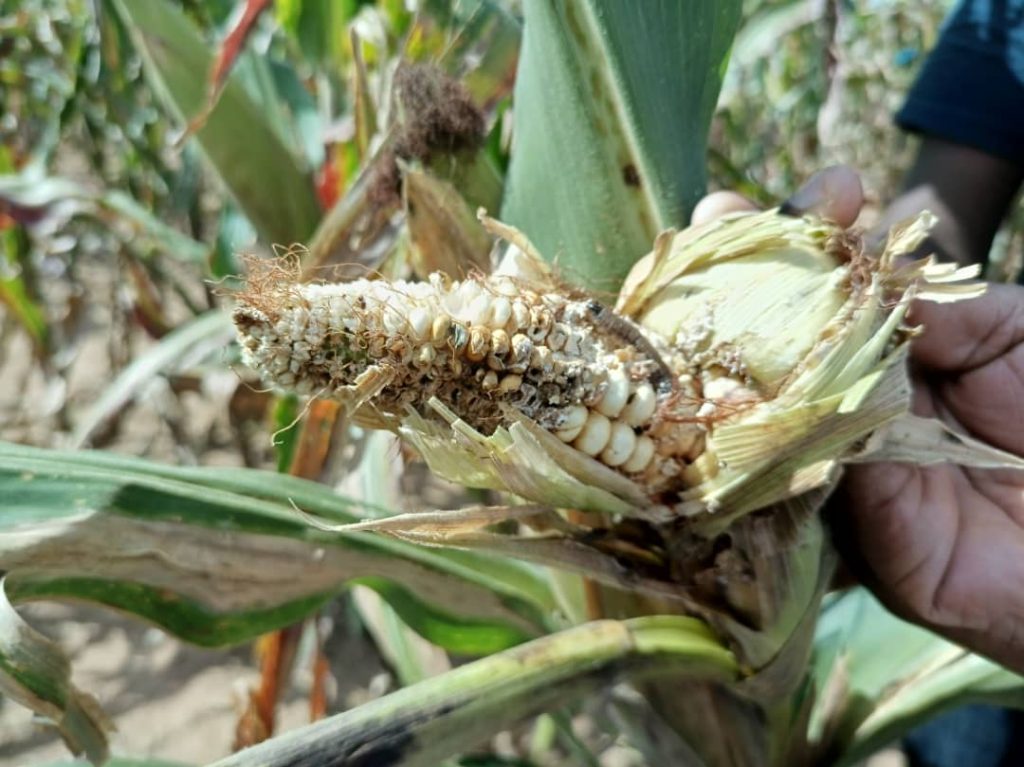
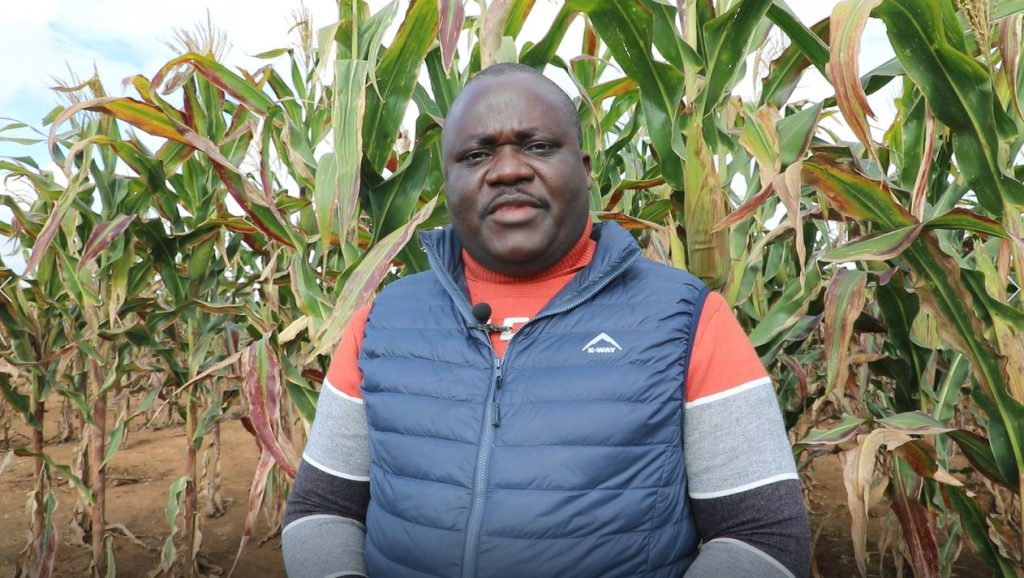
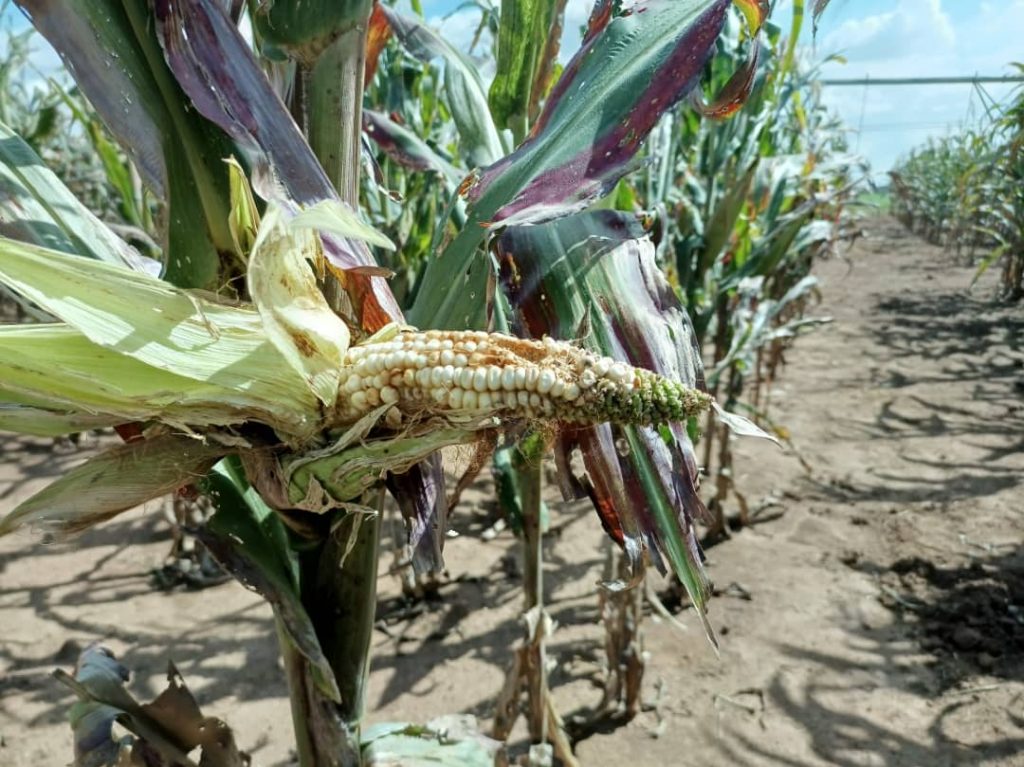
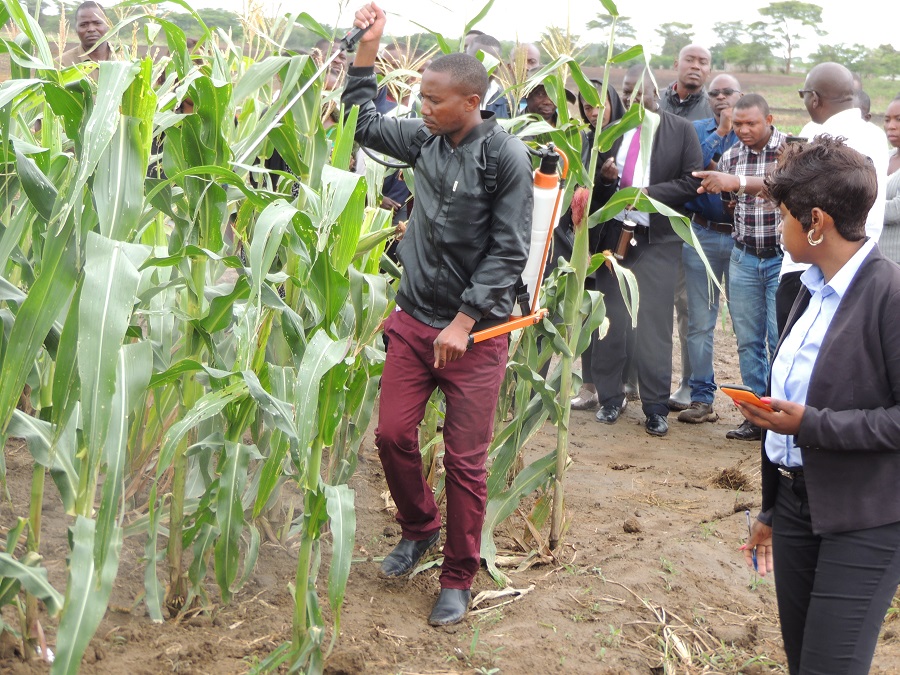
Felix Tembo, Seedcare Manager, Southern Africa Business Area averred that TAAT has been successful in aiding the scaling of Fortenza Duo in Zambia.
“TAAT’s on-farm authentication of the technologies before deployment has also generated useful insights on interactions between Fortenza Duo and other control mechanisms. For example, through TAAT demos, combining Fortenza Duo with Cruiser has been proven to result in better root development on maize plants,” Tembo said.
“Out of the over three million smallholder farmers that we have in Zambia, about 1,024,000 are accessing this technology. I am happy to report that we’ve seen a success in terms of food security and improving livelihoods. On the other side, we have commercial farmers who are also using this technology to multiply corn seed and get an average yield of 10 to 20 percent,” Tembo added.
According to Dr Peter Chinwada, the TAAT FAW Leader, the interest of small holder farmers were prioritised by TAAT through its promotion of Fortenza Duo technology. The promotion ensured whole adopted by the Zambian Ministry of Agriculture, which usually gives out subsidy seed or subsidy inputs to the smallholder farmers.


